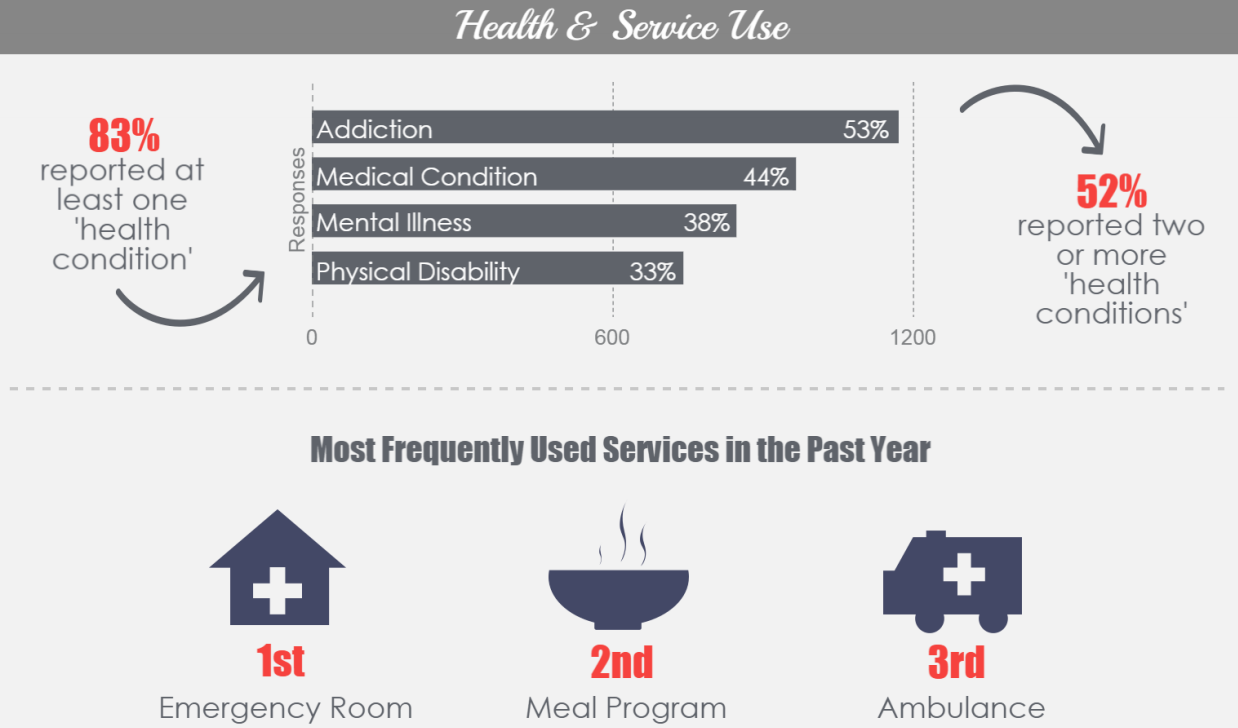Emi’s blog post, “Vancouver, let’s take a step back” struck a chord with me. In her post, Emi points out that though Vancouver is taking strides in becoming one of the most sustainable cities in the world, there are issues that may be overlooked as the city focusses on the 2020 Greenest City Plan. As Vancouver transforms into a becoming a greener city, we can expect that the average Vancouverite would reap great benefits. After all, who doesn’t love the idea of the city planting 150,000 more trees, or the concept of creating zero waste? On top of that, we are to expect more job opportunities as green businesses develop and mature.
Everything sounds great for the average Vancouverite. But what about other people in the community who are less fortunate? A 2017 report by the BC Non-Profit Housing Association shows that homelessness in Vancouver has increased by 30% since 2014. These individuals face challenges that are far different from the average citizen. As shown below, a high percentage of survey respondents reveal that they deal with conditions such as addiction, mental illnesses, and physical disabilities – all while living in shelters and not having a home of their own.

Upon reading this report, I wonder how much Vancouver’s 2020 plan benefits the city’s less fortunate. I would imagine for these individuals to benefit greater from having more access to health and social services than from the results of green initiatives. Don’t get me wrong, I am all for Vancouver’s plan to become one of the greenest cities in the world by 2020. But at the same time, I’m skeptical of whether this plan addresses the needs of the minority also. I only hope that with the implementation of Vancouver’s 2020 plan, for there to also be a ripple effect on making a social impact on less fortunate individuals.
Hello Nicole,
I like the points that you made in this blog. I think it’s very concerning how our homeless population is only growing and I also think that this is steaming from the constant rise of housing prices in Vancouver. I feel that this issue can only be solved by implementing housing caps by the government. In terms of wanting to achieve the greenest city by 2020, I think this also needs to stem from people becoming more educated about what we are consuming as shoppers as this could contribute to the greater goal. I really enjoyed your post, thanks!